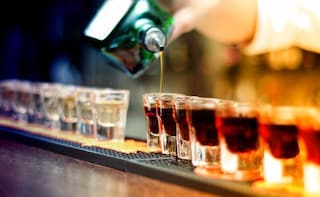In a study conducted on animal model, experts at the Texas A&M University have found that stroke may cause changes in the brain which may activate the desire to have an alcoholic beverage. Certain brain neurons - present in the dorsal lateral stratium - are killed when a person suffers from a stroke. This stops inhibiting certain neurons in the mid-brain region.These mid-brain neurons, which are now far more excitable, send a signal to a particular type of dopamine receptor, called D1 -- which compels an individual to perform an action like having alcohol.
Advertisement
For the latest food news, health tips and recipes, like us on Facebook or follow us on Twitter and YouTube.
Advertisement
